Why We Need to Hunt Lionfish
Why hunt lionfish? The invasive species is causing a stir in the Western Atlantic. Here’s why we need to hunt them!
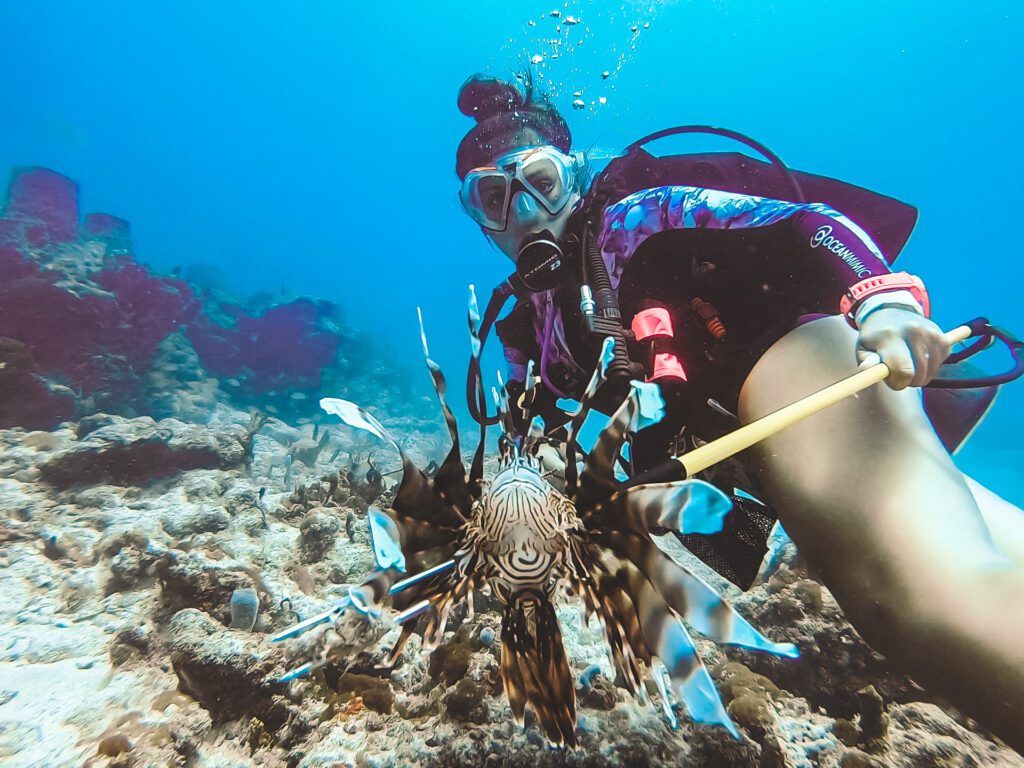
Originally from the Indo-Pacific, lionfish are stirring up huge problems on the other side of the world in the Western Atlantic. In fact, they’ve caused such a problem we need to remove them completely!
Below, we’ll lay out numerous reasons why we need to hunt and remove lionfish. Amazingly, our oceans are literally depending on it!
How did lionfish get introduced to the Atlantic?
In all likelihood, the now notorious fish was once apart of the exotic pet trade – a nice addition to a Pacific Reef aquarium. At some point, an aquarium enthusiast thought it’d be a good idea to dispose of their pet lionfish in Florida’s oceans. How’d it pan out?
Not such a good idea, after all.
The first lionfish in the Western Atlantic was discovered in Dania Beach, Florida in 1985. Since then, the population has spread rapidly throughout the Western Atlantic with no end in sight – laying siege and reeking havoc to every ecosystem in their path.
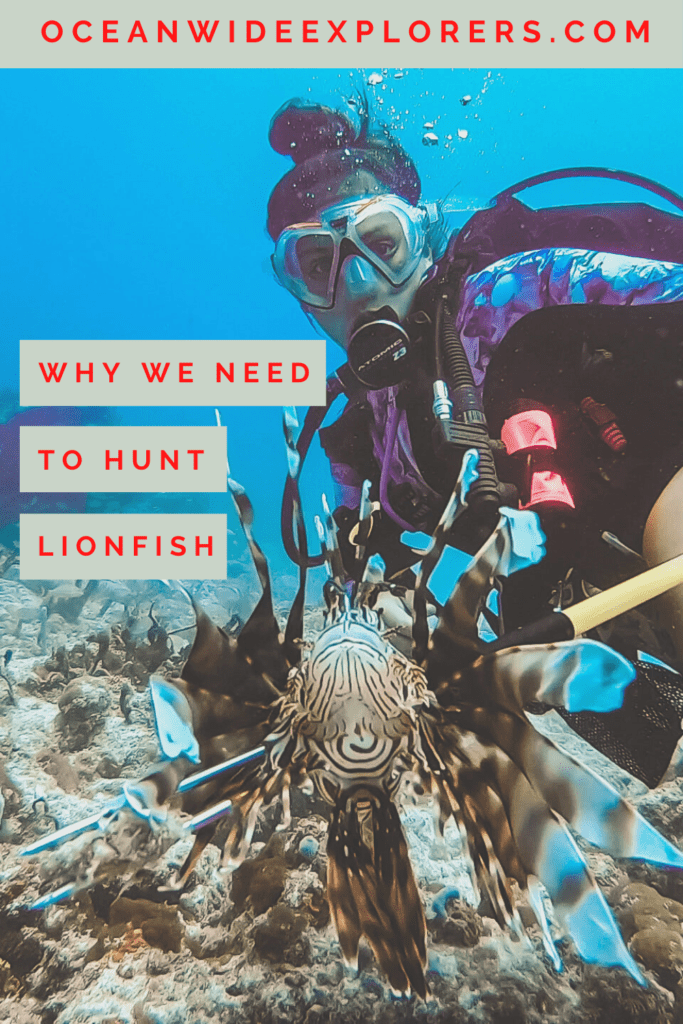
The Reasons Why We Need to Hunt Lionfish
Aptly designated as an invasive species, lionfish are causing an immense amount of damage to the waters of the Western Atlantic. And honestly, our only hope to saving these waters is to carefully and swiftly remove the lionfish one by one!
Sounds impossible, right? Well, it kinda is. Lionfish are like weeds in a garden. Although we’ll never fully eradicate them, pulling the weeds (lionfish) out of the garden (coral reef) does give the other plants (other fish) room to breathe until the weeds inevitably return. Once that happens, you pull the weeds again!
However, when it comes to lionfish, the act of pulling the weed is actually hunting the fish with a spear!
Sounds pretty fun, doesn’t it? It is! And there’s good reason for it, too. Just see for yourself:
1. Lionfish have no natural predators.
The top reason why lionfish have become invasive is their lack of any natural predators in the Western Atlantic. Nothing. Nada. Zilch.
Because of this, their numbers have skyrocketed while spreading far and wide – and rather quickly. We need to stop it – and that’s where you come in.
Long story short? Become the predator by hunting lionfish with a scuba certification and some hunting gear!
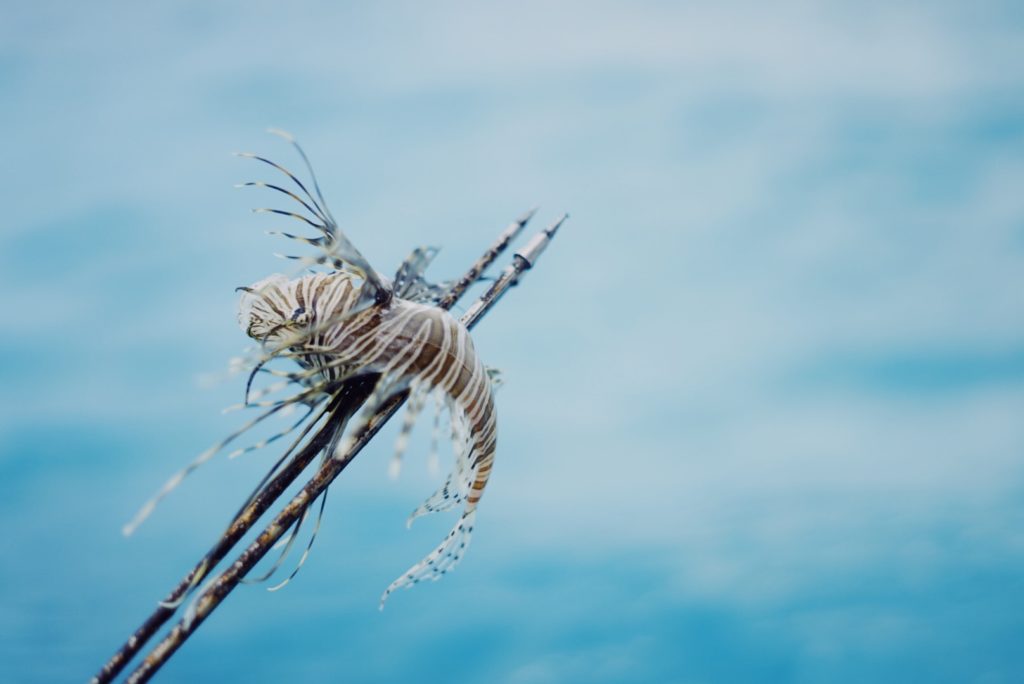
2. Lionfish are decimating native fish populations
In addition to having no natural predators, lionfish have voracious appetites! What does that mean? They eat anything and everything!
The obvious result is native fish populations are being decimated by the invasive species. Not good! Here’s a few reasons as to what drives that appetite of theirs:
Lionfish are Gape Limited Predators
Meaning, lionfish will eat anything that fits in that big mouth of theirs! (I know the feeling)
Expandable stomachs
Lionfish stomachs can expand up to 30x their normal size. That’s a lot of food in that tummy!
Lionfish can eat themselves to death
Specifically, they’ll eat so many fish and creatures they’ll actually develop fatty liver disease and die!
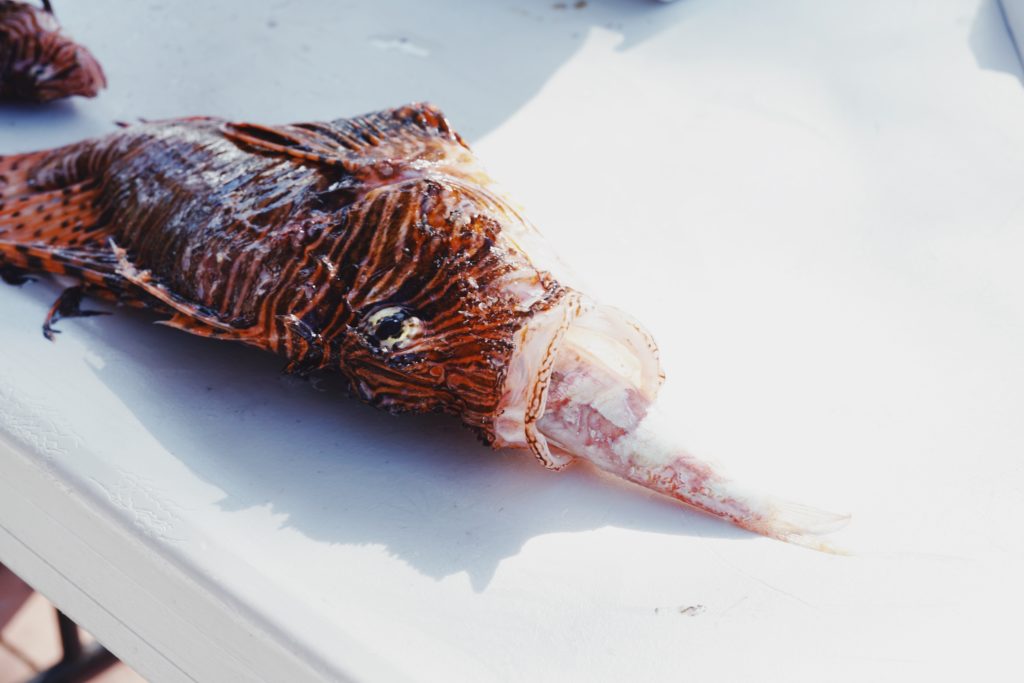
3. Lionfish are incredibly adaptable
The spread of lionfish has made its way to the waters near Philadelphia out to Bermuda, Gulf of Mexico, all of the Caribbean and Central America, and south to Brazil. It’s safe to say, lionfish are incredibly adaptable.
The ultimate adaptation, though? Lionfish are found anywhere between 1 and 1000 feet. In fact, it’s likely that the larger, reproductive lionfish are hanging out in these deep waters.
Hence, back to our metaphor, why the weeds keep returning to the garden!
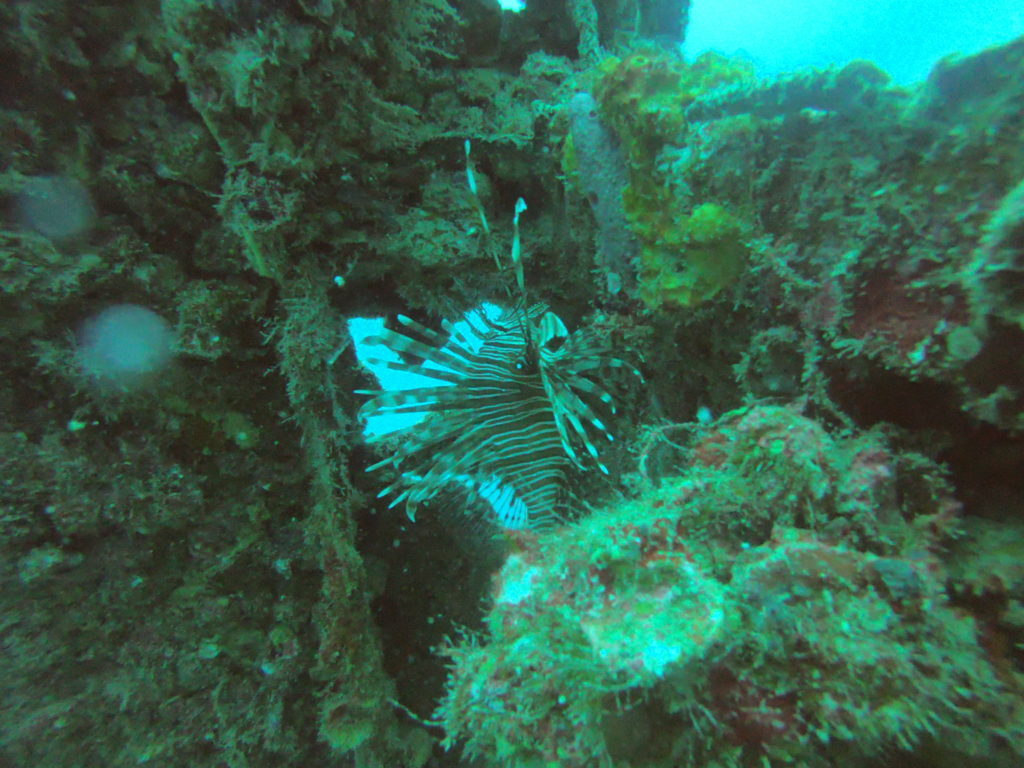
4. Lionfish are good at reproducing
Talk about reproductive phenoms! After one year of development, female lionfish will reproduce every 3-4 days releasing up to 30,000 eggs each time (if a male is present, of course).
Natural ocean currents take these eggs and spread them all over, furthering the invasion! This is likely why the spread of lionfish has occurred so quickly.
Ultimately, hunting lionfish can drastically reduce the number of future lionfish in Atlantic waters! Thus, saving countless numbers of coral reef ecosystems!
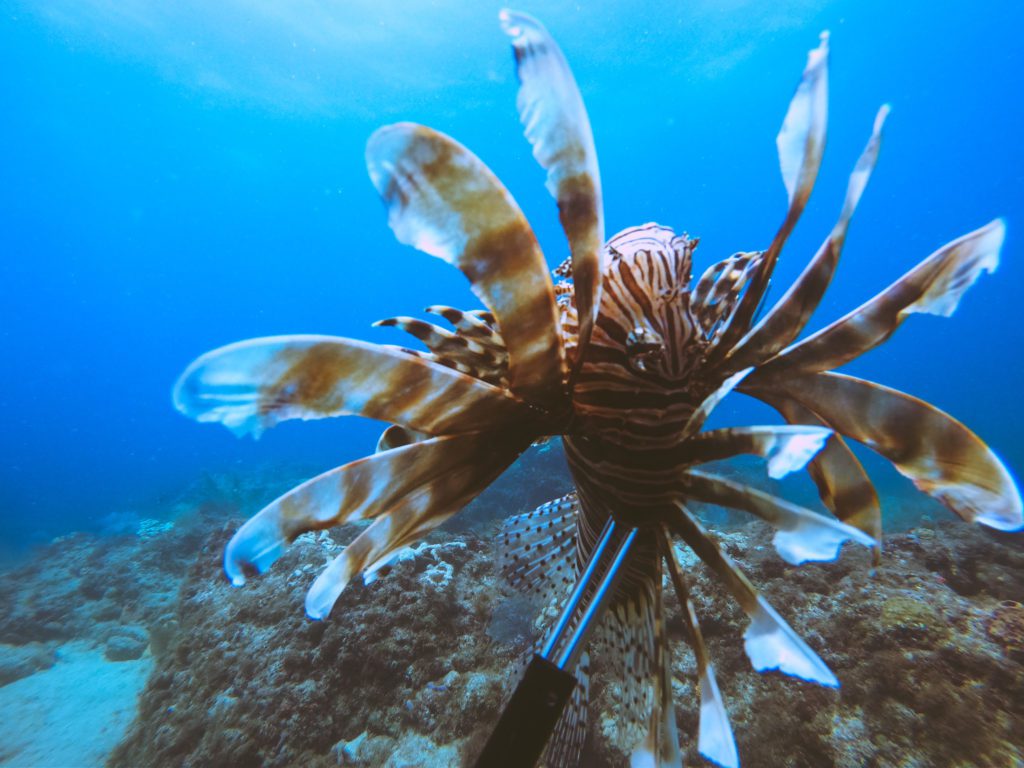
5. Lionfish even effect human health and economy
A lionfish appetite knows no end – this includes commercially important species like lobster and juvenile snapper. Additionally, the invasive species eats environmentally important species that keep our coral reefs alive (i.e parrotfish).
A rippling effect throws off the delicate balance of our oceans’ health. Red tide, dying corals, increased carbon dioxide, and depleting fish stock are all consequences.
Again, another reason why to hunt lionfish – our health and economy is dependent on it!
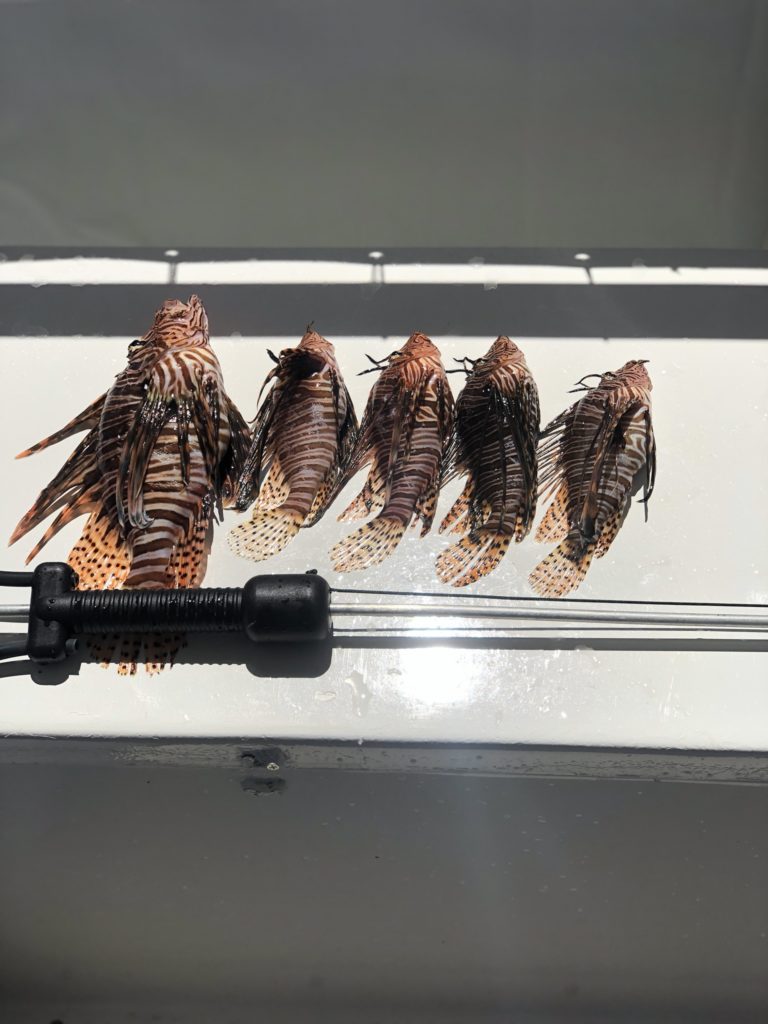
6. Lionfish are the most sustainable fish you can eat!
VERY simply put, sustainable seafood has to deal with how the fish is caught (or farmed) and how that affects the environment at large. It’s a complicated, but important, topic that we are going to discuss in a future blog post.
Ultimately, if we eat unsustainable seafood, we are supporting fishing practices that may have detrimental impacts on delicate ocean ecosystems. What does this have to do with lionfish?
Unlike other fish, the more lionfish you eat, the better it is for the environment! And they’re delicious to eat too!
For more, Seafood Watch has a great tool to find out if the seafood you’re eating is sustainable for your region! (lionfish will always be sustainable in the Western Atlantic and Caribbean)

Conclusion: Why Hunt Lionfish
When it comes down to it, hunting lionfish helps the environment. Plain and simple. Although we’ll never fully eradicate them, studies suggest that removal programs are effective in restoring native fish populations!
So help the environment today and get started with your next ocean adventure: hunting lionfish!
Enjoy this Post? Pin it!

Read More About Hunting Lionfish
We hope you enjoyed our post on why we need to hunt lionfish. Hopefully you’ll find it useful on your next adventure! Here are a few more ocean-loving articles we think you should read next:
- 18 Facts You Should Know About Lionfish
- 11 Tips to Catch More Lionfish
- The Gear You Need to Hunt Lionfish
- Complete Guide to Hunting Lionfish
What’s your experience with lionfish? Let us know in a comment below!

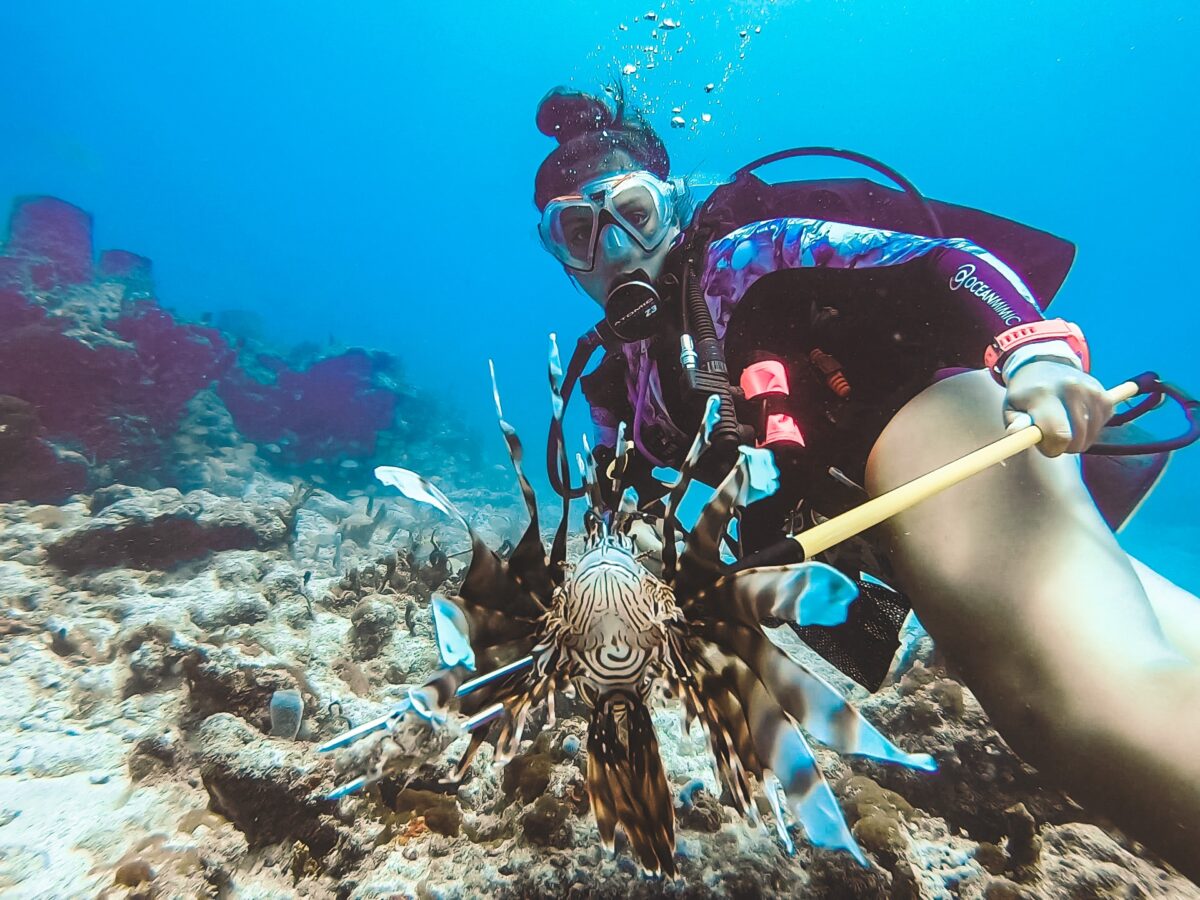

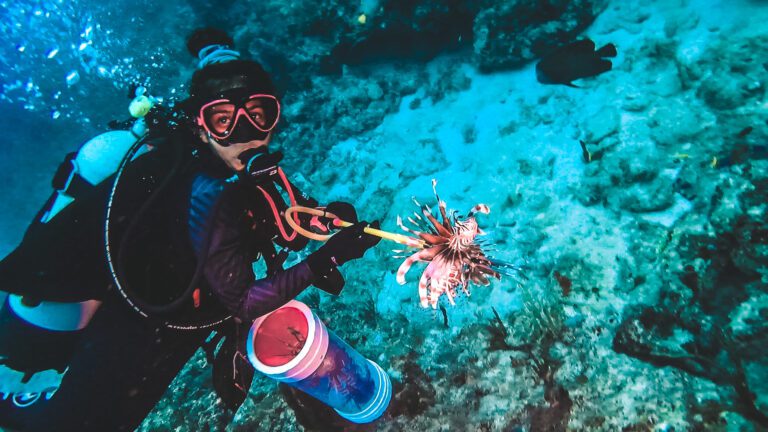
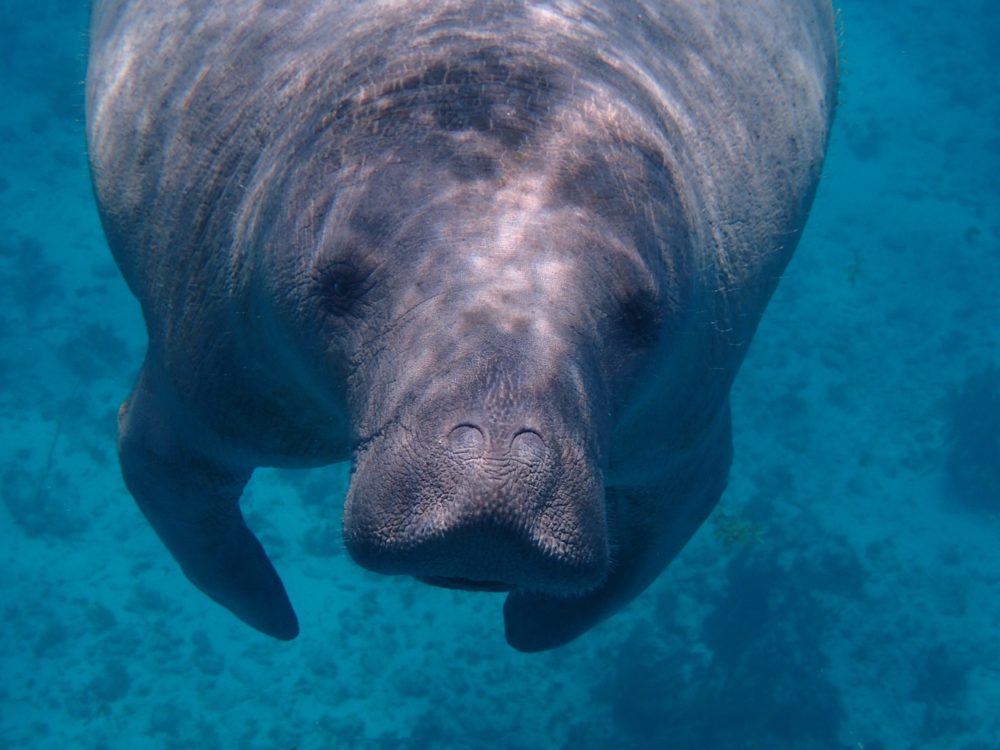

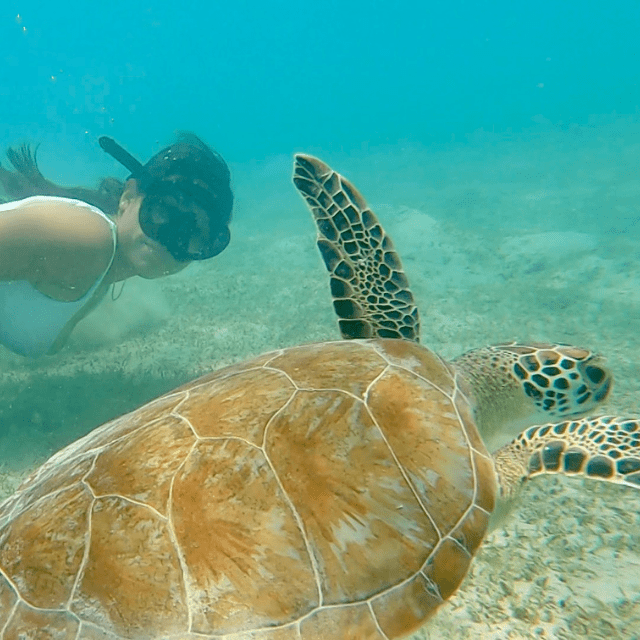
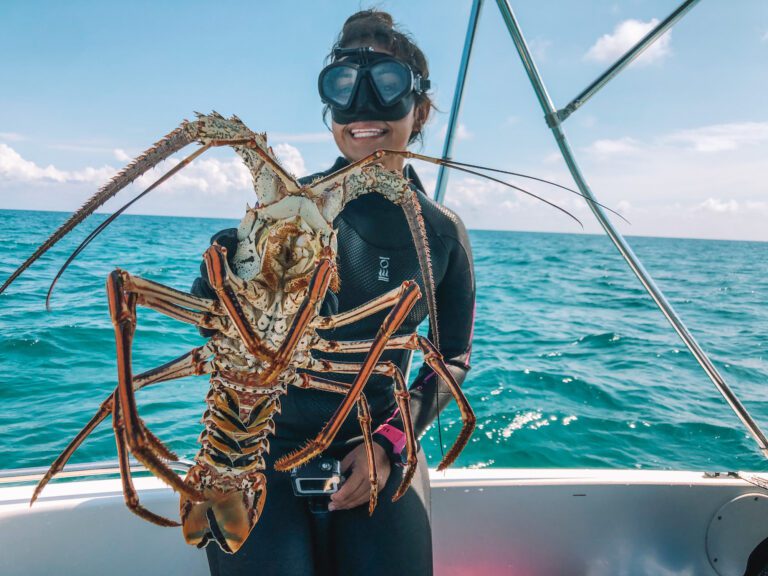
2 Comments